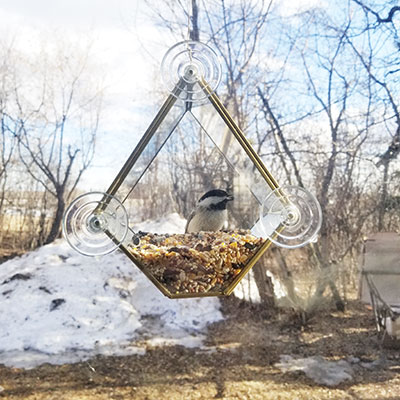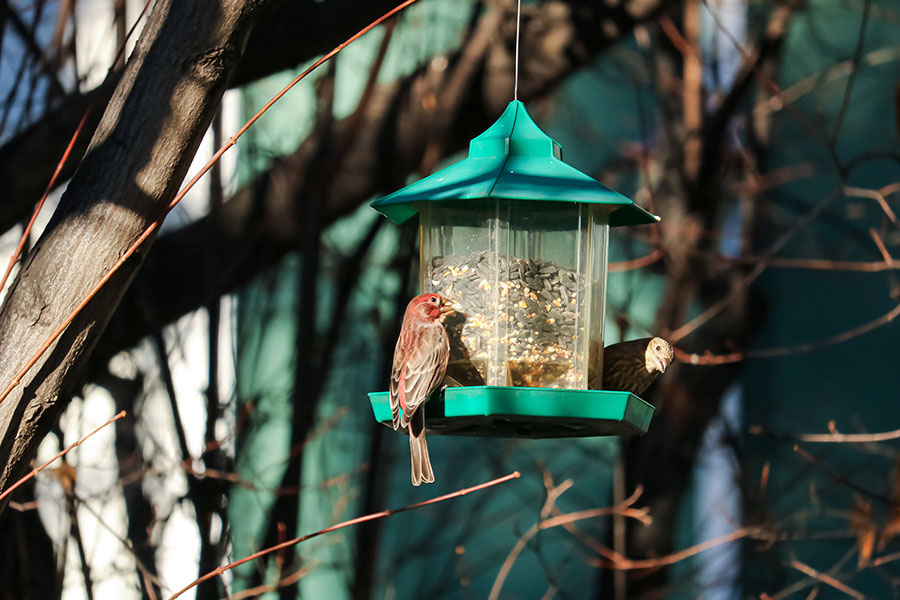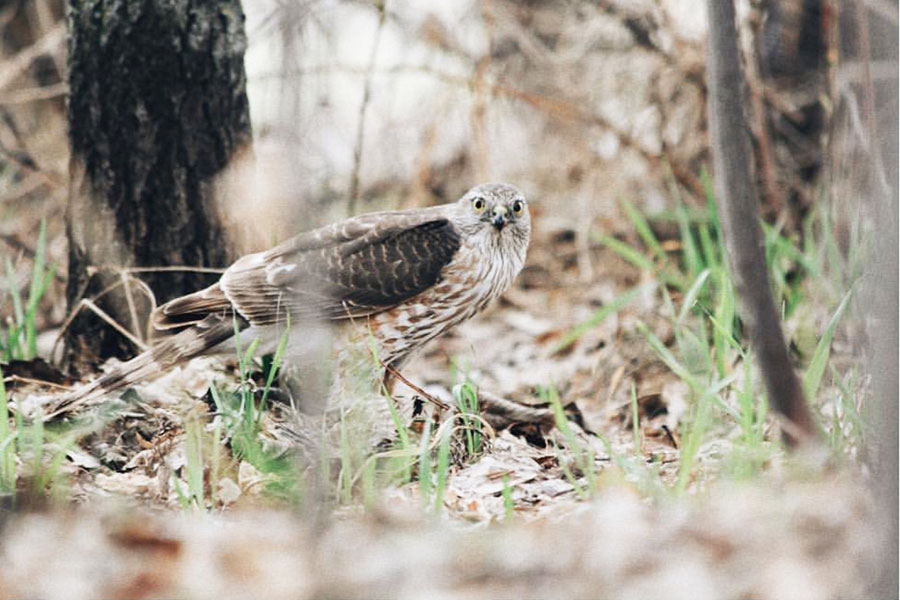Data will contribute to international biology project
The next time you see a NAIT student gazing into their backyard, don’t disturb them! For this cohort of Biological Sciences Technology students, watching the comings and goings of their local birdfeeders is more than idle daydreaming – it’s gathering important data for an international research project.
And the students have banded together to continue doing it in isolation.
Project FeederWatch is an ongoing citizen-science program run by the Cornell Lab of Ornithology and Birds Canada. Members across the continent agree to survey a particular area near them for two consecutive days in a given week, for any amount of time they like.
During this time, they track information like the species of birds they see, how many there are, and any noteworthy behaviours (such as a crow chasing off a group of chickadees in order to take the prime spot at the feeder). This information is then used by researchers to track larger trends in the ranges and populations of winter birds across North America. It can even be used to help detect a species in decline, determine why and contribute to its recovery.
 NAIT’s biological sciences club first signed up to participate in Project FeederWatch in 2019, with a number of feeders set up around the Main Campus. It was well received, both by club members and by those who simply enjoyed the opportunity to glimpse a purple finch or two.
NAIT’s biological sciences club first signed up to participate in Project FeederWatch in 2019, with a number of feeders set up around the Main Campus. It was well received, both by club members and by those who simply enjoyed the opportunity to glimpse a purple finch or two.
But with activities at NAIT now significantly restricted due to COVID-19, club members knew that their project would need to adapt if it was going to survive – especially since experiences like birdwatching have become more important than ever.
“We’re all spending a lot more time indoors than we used to, and it’s become harder to peel ourselves away from our screens and see what’s going on around us,” says Celina Gerlich. She’s a conservation biology student, as well as the current president of the biological sciences club.
After participating in Project FeederWatch last year, she decided to spearhead the effort to bring the project off campus and into students’ yards for 2020.
Thanks to a grant of $1,745 from campus clubs (administered by the NAIT Students’ Association), Gerlich was able to acquire 30 regular birdfeeders, 30 suet cages, and enough birdseed to last participants the entire monitoring season from November to April. Club members picked up their supplies earlier this month, and have started gathering their data, which will be uploaded to Project FeederWatch’s central database once the season is over. (At that point, the feeders will be returned to the NAIT campus and installed there permanently.)
The many benefits of birdwatching

For participants, counting birds is more than a lark. Gerlich says that learning to identify species based on their appearance or sound is a skill that could ultimately make them more employable in the field after graduation. The fact that these feeders are now set up at students’ homes all around the city means that they’re also gathering a broader range of data than they were able to last year.
Spending time engaging with nature has broader benefits, too. Gerlich says that there’s plenty of evidence that activities like birdwatching can improve a person’s mental health, and combat what is informally known as nature deficit disorder.
There are even social benefits to the program – especially for first-year students who find themselves without most of the bonding opportunities they would have enjoyed during a typical school year. The bio-sci club has set up a shared Moodle page where all of NAIT’s FeederWatch participants can post updates, photos and, yes, birding memes. Many of them will put their newfound skills (and feeders) to further use by participating in the annual Christmas Bird Count, an international project run by Audubon, this December.
There’s plenty of evidence that activities like birdwatching can improve a person’s mental health.
Laurie Hunt, a Biological Science Technology instructor who first enrolled NAIT in Project FeederWatch in 2019, is supporting participants again this year by helping track down supplies, coordinating related birding activities, and hosting conservation and bird-identification talks so students can learn more about the species they’re likely to encounter. She’s been thrilled to see the project continue in these unusual circumstances.
“I think it’s brilliant,” Hunt says of Gerlich’s initiative.
While students participating in Project FeederWatch don’t receive course credit, Hunt says the project has two goals: to contribute to an important scientific venture, and to instill in students an appreciation of birds and birdwatching that will, with any luck, carry on throughout their lives. Being aware of the diversity of nature can make you more grateful for it, and more likely to continue engaging with it as you grow older.
“Every community has birds in it, pretty much,” says Hunt. “So once you build that appreciation, it’s something you can do wherever you are.”
